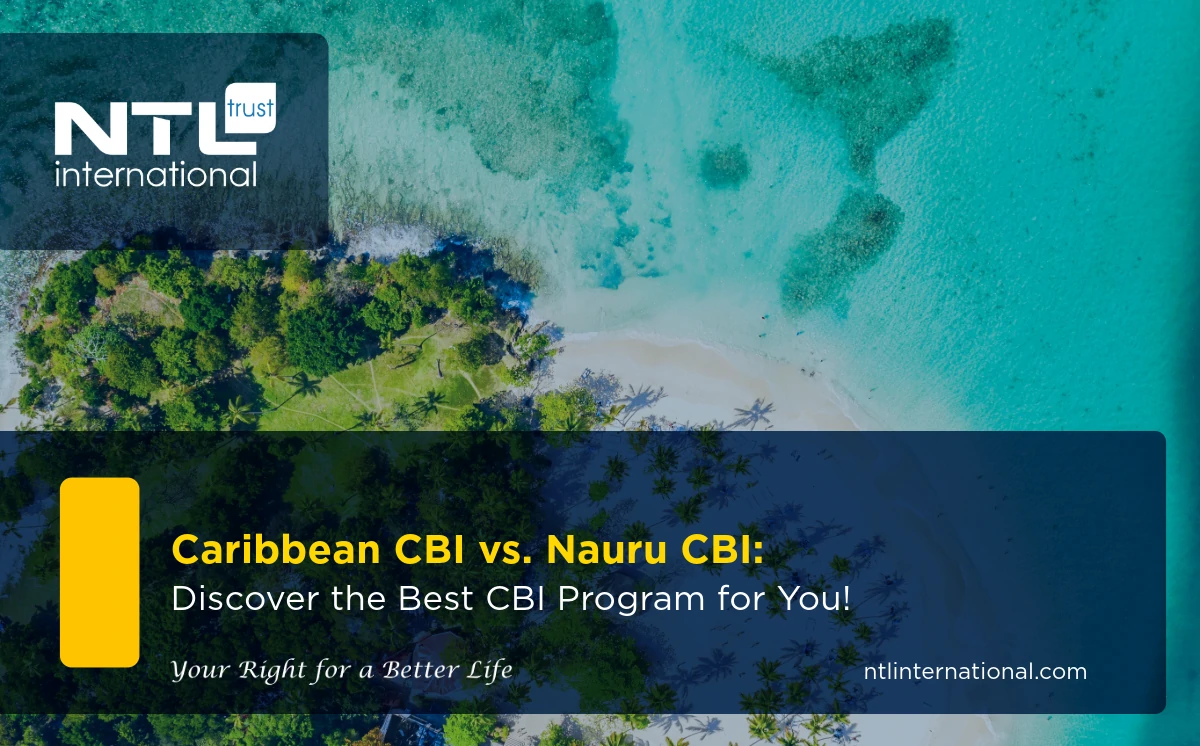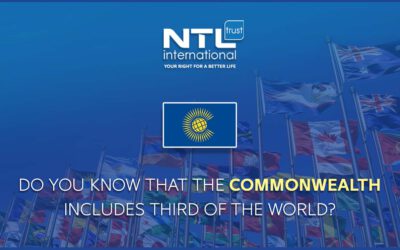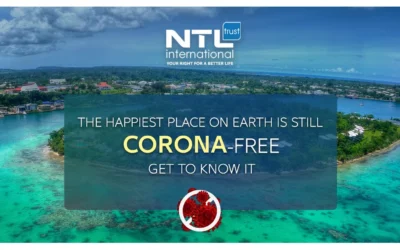
Nauru CBI or the “Nauru Economic and Climate Resilience Citizenship Program” (NECRCP) was officially announced during the United Nations Climate Change Conference (COP29) held in Baku. This program aims to support sustainable development and climate resilience projects in Nauru, focusing on investments with positive social and environmental impacts.
On the other hand, Caribbean Citizenship by Investment (CBI) programs programs have been renowned for years, offering an ideal opportunity for investors seeking a strong passport or investment in a promising environment under attractive terms.
Comparison: Caribbean CBI Programs vs Nauru CBI program:
Below is a comprehensive comparison of the Caribbean and Nauru CBI programs based on several key aspects:
Investment Requirements:
Minimum Investment Amounts:
– Caribbean CBI Programs:
-
- Donations: Starting from $200,000 for most programs.
- Real Estate: Investments start at $270,000, provided the property is government-approved.
- Additional fees apply for due diligence and adding family members.
– Nauru’s Second Citizenship Program:
-
- Starting from $105,000, focusing on sustainable development and climate adaptation projects.
- Specifically designed for high-value investments with significant social and environmental impact.
Adding Family Members:
- Caribbean: Applicants can include spouses, children under 30, parents, grandparents, and unmarried siblings.
- Nauru: Applicants can include spouses, children under 30, parents, and grandparents.
Interviews:
- Caribbean: Personal interviews are required for applicants and dependents over 16 years old.
- Nauru: Only the principal applicant is required to attend an interview.
Processing Time:
- Caribbean: 4–9 months.
- Nauru: 3–6 months.
Economic Impact:
Caribbean CBI programs:
CBI revenues are utilized for:
- Tourism Development: Hotels and resorts.
- Infrastructure: Public facilities and transportation.
- Disaster Recovery: Reconstruction after hurricanes.
Nauru CIP:
The second citizenship program focuses on:
- Sustainability: Renewable energy projects and water management.
- Infrastructure Development: Ports, housing, and public services.
- Climate Change Adaptation: Programs addressing rising sea levels.
Key Benefits:
Caribbean CBI Programs:
- Established reputation and international credibility.
- Flexible family options, including siblings.
- Grenada’s program offers access to the U.S. E-2 visa, allowing residence in the United States.
Nauru CIP:
- Emphasis on sustainability, attracting investors with a focus on social and environmental causes.
- Strategic location in the Pacific, ideal for investors interested in trade and eco-tourism in the Asia-Pacific region.
- Direct contributions to combating climate change and supporting vulnerable communities.
Visa-Free Travel
Caribbean CBI programs:
Visa-free or visa-on-arrival access to over 140 countries, including:
- Europe: Schengen Zone, the United Kingdom.
- Asia: Hong Kong, Singapore, South Korea.
- Americas: Brazil, Chile.
- Africa: Kenya, South Africa, Mauritius.
Nauru Citizenship Program:
Visa-free or visa-on-arrival access to over 91 countries, including:
- Europe: United Kingdom, Ireland.
- Asia-Pacific: UAE, Hong Kong, Russia, Fiji.
While Nauru offers strong access to Oceania and Asia-Pacific, its global reach is less extensive than that of Caribbean passports.
Geographical and Strategic Importance
Caribbean CBI programs:
- Proximity to North and South America, offering access to major markets.
- A preferred destination for retirees and luxury real estate investors.
Nauru CBI program:
- It is located in the Pacific Ocean, providing strategic access to Oceania, Asia, and Australia.
- Ideal for investors with economic interests in the Asia-Pacific region.
The Caribbean CBI and Nauru’s second citizenship programs cater to distinct investor needs. The Caribbean programs offer globally recognized passports with extensive visa-free access and flexible family options. Meanwhile, Nauru’s program stands out for its focus on sustainability, social impact, and its strategic Pacific location.
For personalized guidance on citizenship by investment programs tailored to your requirements, consult the experts at NTL. Let us help you make the most informed decision for your future.
Highlights on Ankara Agreement (ECAA)
(ECAA) is the European Community Association Agreement or what is known as the Ankara Agreement between the Republic of Turkey and the European Economic Community for paving the way towards Turkey’s accession to it.
Do you know that the Commonwealth includes a third of the world?
Commonwealth Day is celebrated annually across 5 continents in Africa, Asia, the Caribbean, the Americas, the Pacific and Europe. Members of the British royal family are accustomed to attending the annual Mass. The Queen receives a speech broadcast worldwide and witnesses activities such as science marches, street parties, dancing, parades, discussions and festive activities.
Albania is Close to EU Membership
The European Commission said that Albania and Northern Macedonia have made sufficient progress, allowing them to be positioned as the official “candidate” in European Union membership bids
Turkish Citizenship Certificate Delay & Changes in the Processing!
The Civil Registration and Citizenship Department of Istanbul Province announced today the temporary suspension of receiving any reviews from investors who recently acquired Turkish citizenship and wish to obtain the citizenship certificate.
The Happiest Place on Earth is Still CORONA-FREE
In light of the widespread and rapid of the Corona epidemic Covid-19 worldwide, people are increasingly searching for a safe place to protect themselves and their families.





